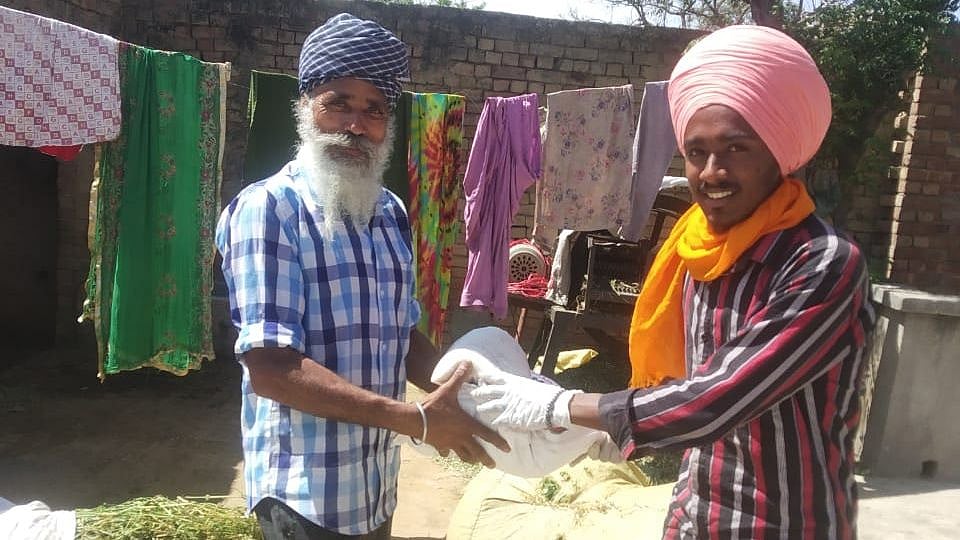Accused of Khalistani Links, Delhi HC Grants Bail to UAPA Detainee
Lovepreet Singh was granted default bail after he was arrested under UAPA and sections of the Arms Act on 18 June.

advertisement
21-year-old Lovepreet Singh, accused of UAPA offences for alleged Khalistani links, was granted default bail by the Delhi High Court on 11 February.
Lovepreet has been charged under the UAPA and the Arms Act in an FIR registered by the Delhi Police Special Cell on 16 June 2020, and had been in custody since 18 June 2020.
This clarification could prove useful to ensure that people do not end up languishing in jail while the police take time to complete their investigation – and stop the use of inapplicable excuses to deny bail.
Explained: The Technical Grounds Due to Which Lovepreet Got Bail
Under the UAPA, the police/investigating authorities have an initial 90 days after a person’s arrest to file a charge sheet – which can be extended by up to a further 90 days if the police show they still need time for their investigation.
For this to happen, the prosecution is supposed to move an application for an extension which can granted by the court after the public prosecutor (PP) convinces the judge that there are valid grounds to do so.
The Delhi Police special cell, had arrested Lovepreet on 18 June 2020, which meant that the initial 90 day deadline for the chargesheet ended around 18 September. A week before that initial deadline, they obtained a first extension of the deadline, which was to end on 11 November 2020.
Lovepreet’s lawyers argued that this was not a ground for extension as the prosecution could only ask for time to complete the investigation. Here, the PP had instead argued that the investigation was complete and only sanction was needed.
Despite these objections, the request for a second extension of time was granted by the Additional Sessions Judge of the Patiala House Court on 10 November and another 20 days were granted for them to complete the investigation.
The order notes that according to the material on record, the police had already obtained the sanction for the charge sheet well before 11 November 2020. The sanction from the government had in fact been granted on 3 November 2020, and then received by the office of the Police Commissioner’s on 5 November, and had reached the right people by a latest of 6 November.
This information had come to light when the prosecution submitted their charge sheet in the case on 28 November 2020, according to Lovepreet’s lawyers. Lovepreet was represented by advocates Rajiv Mohan, Tara Narula and Abhimanyu Kampani in the Delhi High Court.
The SC judgment quite clearly states that the grant of sanction is not part of the ‘investigation’ itself, which means a delay in receiving it cannot be claimed as further time for the investigation. An extension to the deadline for default bail cannot be granted for administrative reasons.
This meant that on both law and facts, Lovepreet had been entitled to default bail on 11 November 2020 itself. As a result, Justice Suresh Kumar Kait ordered the immediate release of the accused.
Conditions of Bail
“In view of the aforementioned facts and the legal position, I am of the view that the petitioner was entitled to default bail even on 11.11.2020,” the order reads.
Lovepreet has been released on bail on furnishing a personal bond of Rs.25,000/- with two sureties of the like amount to the satisfaction of Trial Court/Designated Court.
“We felt ecstatic, couldn’t handle our happiness. Will take some time to arrange the money. We all are agricultural labourers, work some days and do not get work some days. Every day we make Rs 200 only, so we will have to loan money from someplace,” his brother 25-year-old Satnam Singh told The Quint.
What is This Case About?
The FIR was first registered against one Mohinder Pal Singh on 16 June 2020, with the police alleging he has Khalistani links and had obtained weapons in connection with this. The FIR was registered under Sections 25, 54, 59 of the Arms Act.
After his arrest, the Delhi Police Special Cell team went to investigate the case further in Samana district in Punjab, where they arrested Lovepreet from close to a bridge and brought him to Delhi.
Lovepreet hails from Shadipur in Kaithal area of Haryana, which is bordering Punjab, and works with a CCTV company in the area. His family works as agricultural labourers.
The police have alleged that there is Khalistani content on Lovepreet’s Facebook page and that they had recovered two pistols from him upon his arrest. His brother has said that he does not know about this, “I have never used Facebook in my life. I do not know. These allegations of pistols are also incorrect,” Singh said.
His family claims they were not told about his arrest.
It also important to mention here that disclosure statements are admissible as evidence only in the event that they lead to the recovery of evidence.
“Lovepreet has told us that he has no links with Mohinder Pal Singh whatsoever and over and above that the police have not been able to establish a link between the two men either. For instance, there are no call records to establish a connection between the two,” Tamanna Pankaj, one of the lawyers connected with the case, said.
While only sections of the Arms Act were originally listed in the FIR, UAPA sections were added after Lovepreet was arrested.
(At The Quint, we question everything. Play an active role in shaping our journalism by becoming a member today.)